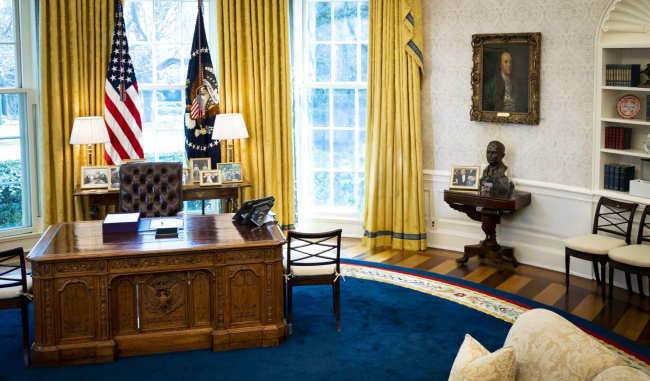MOOCs: Re-Creating Affordable Education

This piece is the thrid in a series of four Chroniques américaines on education in the United States, published this week.
Prior to World War II, American higher education followed a model wherein only the privileged elite or those pursuing a career which required a college degree, such as STEM (Science, Technology, Engineering, Mathematics) or careers in academia, would attend a university. Two laws changed the face of American higher education in this regard: first, the GI Bill, providing college education for veterans, sent a generation of young men to university following World War II; second, the Higher Education Act of 1965 – establishing federal aid and loans for students in need – gave unprecedented access to higher education for the following, non-veteran generation. [1] As a series of factors led to both an increased demand and supply of young, college-educated workers, the price of college tuition rose rapidly to match, especially as universities realized that federal aid subsidies and the necessity of a college degree for a successful career meant that students could and would pay almost anything for their education.
Due to the necessity of obtaining a degree, and the immense cost that participating in American higher education requires, a new model for mass education is in high demand. Enter the MOOC. “Massively Open Online Courses,” whose exact emergence is hard to pinpoint, have existed for at least five years, and allow participants to view recorded or live-streaming lectures from university professors through the internet. Some universities offer these lectures free of charge to anyone with an internet connection, whereas others charge a nominal sum but may provide the student with a certificate of participation. Though these certificates cannot replace a bachelor’s or associate’s degree, the rising popularity of these online classes may mean that employers begin taking credentials earned or skills learned from them more seriously. Additionally, in certain modern industries, degrees are not as valuable as they once were when held against one’s work experience, coding ability, or other skills which can be self-taught, so even the knowledge imparted by these courses may be enough to start or improve a career.
A new model for affordable education
In prior generations, it was feasible for American students to work their way through college on part-time and summer jobs. Unfortunately for the younger generation, the rising importance of unpaid internships and the exponential increases in the costs of attendance have long since made this idea unrealistic. However, in a move that could herald the revival of the concept, the Starbucks Corporation announced the ‘Starbucks College Achievement Plan,’ a program whereby the company will subsidize certain eligible employees’ attendance at University of Arizona Online, a MOOC-based version of the University of Arizona, while they work for the corporation. Although it is too early to make any definitive claims on the impacts this program may have, it does provide a way for a handful of students – Starbucks employees, specifically – to work their way through college and graduate debt-free.
Under the program, students will receive a bachelor’s degree after completing four years of online courses. Students in their first two years of schooling will be charged a partially-reduced tuition, and those in the second two will pay nothing. Currently, Starbuck’s move is being regarded by some as little more than an experiment, and a way to attract higher-level employees while simultaneously reducing turnover rate. [2]
Online universities are still relatively new, and their initial emergence as for-profit institutions – rather than conforming to the traditional non-profit American educational model – damaged their credibility. However, other observers are somewhat more optimistic: Starbucks is not requiring employees to work for them after their graduation, and the move presents a much cheaper, more manageable alternative to the current standard of paying one’s way through college using student loans. For now, the program is only available to a fraction of Starbucks’ 135,000 employees, [3] but should the idea prove successful, it could lead to other corporations following suit.
Two formats for web-based learning
Currently, there are two main models for the usage of MOOCs: programs, like the one offered by Starbucks, which consist of many classes and lead to some form of certificate or degree; or simple one-off courses which students can take individually and only rarely lead to a certificate. Under the first model, MOOCs are used simply as an alternative medium in pursuit of a more traditional educational program and certification, such as in the case of fully online universities or the newly emergent web-based offer of traditional brick-and-mortar institutions. Some group activity and peer interaction can occur, based around web chat rooms, group projects, and other forms of web-facilitated collaboration. The flexibility of online, recorded lectures can be highly accommodating for someone working a full- or part-time job – part of the reason Starbucks has chosen to pay for its employees to attend an online university rather than a physical one. The inherent flexibility of the medium means that motivated students could potentially finish a four year degree in less time, at an even lower cost.
Under the second model, where many individual, independent courses are offered with no larger degree to obtain, the main advantages and benefits of the courses are for personal, independent study. [4] These MOOCs – some of which are provided by major universities like MIT and Harvard – have their greatest potential in two areas: for teaching students skills – like coding – which can be used to start one’s own business or are not generally degree-based, or for students in third-world or developing nations, where public education is problematic or nonexistent, and degrees are far less important to one’s career. Resources like Khan Academy, a major online source for non-university-affiliated MOOCs, can teach students skills like math and coding, but also offer lectures on art history and other skills in the humanities. MIT’s OpenCourseWare and Harvard’s Open Learning Initiative are both aimed towards improving the availability of information for self-motivated learners, and offer a wide array of courses across all disciplines.
In both the case of underprivileged students replacing an ineffective education and more established people pursuing additional knowledge, the skills learned from individual MOOCs have the potential to greatly assist in jumpstarting people’s business ventures. These courses can teach extremely valuable skills which can aid in starting a business or a career. They have already seen a great deal of participation from young entrepreneurs in developing nations looking to start a business, to learn a high-tech skill, or simply to learn standard subject matter that their public school systems may be lacking. [5] Some of the skills taught by these courses do not require a degree for use, and so these types of MOOCs can provide an advantage despite being less helpful for the standard resume-building of a normal education.
Limitations of the model
Unfortunately, employers do not regard MOOCs or their certificates as especially valuable so far. Many MOOCs are targeted at or best suited for graduates working to solidify or expand an already existent skill set, meaning that prospective students looking to start from scratch may still be better served in a physical educational setting.
Additionally, for a variety of reasons, the dropout rates for online courses can approach 90%, [6] which may further contribute to the wariness with which they are regarded by potential employers. The reasons for this are not fully understood, but informed speculation suggests that this high rate is a result of the difficulty of self-motivation outside of an academic and social environment such as a university, and the low cost to entering the classes in the first place which means dropouts lose only a small investment.
Another concern raised by critics of the burgeoning model is the corporatization of MOOCs, and potentially education in general. Product placement already plays a large role in the capitalist economy for the sponsorship of free or cheap services such as television. MOOCs provide a new, unique opportunity to reach a large base of students with known interests, presenting a very attractive target to advertisers. Combine this with the fact that the courses are often offered for free, or at least relatively cheaply, and that many are unsubsidized by typical university endowments, and it becomes apparent that universities and other MOOC-providers seeking to monetize their service could do so easily through paid product placement. Unfortunately, with corporate sponsorship also comes corporate censorship: the views of wealthy advertisers may clash with those of MOOC lecturers, leading to a potential conflict of interest when corporations threaten to withdraw their marketing money unless a lecturer teaches a certain way or encourages student purchases. [7] There have already been some cases of worrying product placement, including in a course syllabus which suggested – but did not require – that students purchase a genetic testing kit for personal use from a specific online retailer. [8] Understandably, these developments have caused some concern in the academic community. In order for MOOCs to be accepted as legitimate sources of unbiased education, they will need to find non-corporate sponsors, be affiliated directly with universities and reap the benefit of their university’s endowment, or charge fees which could limit access for less-privileged students. Otherwise, they risk becoming too dependent on potentially compromising sources of revenue, which could seriously damage any credibility they may garner.
In Conclusion
MOOCs have limits. Without offering degrees or a full college experience, they are unlikely to replace standard educational models. Until now, MOOCs have not carried the same weight with businesses during the job application process, although they do prove useful as places for a person to hone his or her skills for industries such as computer programming which do not value degrees as highly. Furthermore, their mass model of higher education has the potential to be co-opted by corporate interests, which could compromise the integrity of the programs.
However, MOOCs by themselves have the potential to be quite useful for building individuals’ skills – either as a supplement to an existing education, or as a replacement for a lack of one. In the third world especially, MOOCs have the potential to bring high-level teaching to a vast population, and hopefully endow the new generation with a wide range of proficiencies and expertise which could improve their lives. [9] Online universities offering traditional two- and four-year degrees, if providing some sort of social interaction for their students and run along non-profit rules, could in time prove to be a viable alternative to certain types of college education. Programs such as those pioneered by Starbucks may come to provide a cheap, mutually beneficial alternative to the current American educational model.
Only time will tell if American corporations and culture will begin to regard MOOC education as legitimate.
[1] http://www.npr.org/blogs/ed/2014/06/19/322563525/free-college-for-all-dream-promise-or-fantasy?utm_source=facebook.com&utm_medium=social&utm_campaign=npr&utm_term=nprnews&utm_content=20140619
[2] http://www.businessinsider.com/starbucks-free-college-plan-2014-6
[3] http://www.dzone.com/articles/starbucks-showing-way
[4] http://www.thecompleteuniversityguide.co.uk/distance-learning/moocs-(massive-open-online-courses)/
[5] http://www.mercurynews.com/ci_22696060/cassidy-coursera-class-offers-peek-into-determination-student
[6] http://www.thecompleteuniversityguide.co.uk/distance-learning/moocs-(massive-open-online-courses)/
[7] http://burnablebooks.com/productplacement/
[8] http://www.siliconbeat.com/2013/09/30/23andme-and-udacity-partnership-raises-questions-about-the-future-of-moocs/?doing_wp_cron=1404822341.9383718967437744140625
[9] http://www.usnews.com/education/online-education/articles/2014/07/01/international-impact-of-moocs-still-up-in-the-air

Available in:
Regions and themes
Share
Related centers and programs
Discover our other research centers and programsFind out more
Discover all our analysesDonald Trump v. the States: the Case of New York
While the disruptive policies of the second Trump administration are being implemented at the federal level and on the international stage, they are also being felt in the federal states and major cities across the country. In the spring of 2025, several cases involving the state and city of New York demonstrate that the president’s attacks on environmental protection, the separation of powers, freedom of speech, etc., are also being carried out at the local level.
How the US under Trump Became a Strategic and Ideological Adversary of Europe
The Europeans' worst security nightmare seems to be coming true: on Tuesday, February 18, 2025, U.S. Secretary of State Marco Rubio and Russian Foreign Minister Sergey Lavrov met in Saudi Arabia to initiate the normalization of relations between their two countries. The meeting also aimed to set up peace negotiations for Ukraine. However, despite having the potential to affect the entire continent, the discussions took place without the Europeans or the Ukrainians being present.
Will Trumpian Authoritarianism Lead to a Constitutional Crisis?
Since his return to the White House on January 20, 2025, President Donald Trump has signed around sixty executive orders to implement his political agenda. Numerous other measures have also been introduced by the White House and the new Department of Government Efficiency (DOGE) as part of these orders.
Trump’s Second Term: Laying the Groundwork for a New Trade War
In a statement released on February 1, 2025, President Trump announced the implementation of a 10% tariff on Chinese goods and a 25% tariff on imports from Canada and Mexico. While the former took effect via executive order on February 4, the latter were granted a 30-day reprieve. Sanctions targeting European Union (EU) products are said to be imminent.








